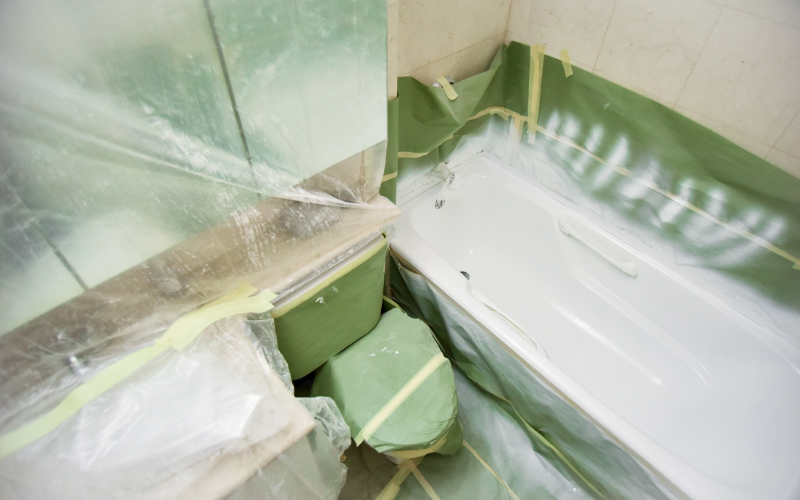
Last week’s economic reporting included readings on home sales, Fed Chair Jerome Powell’s testimony on monetary policy to the House Financial Services Committee, and the University of Michigan’s Consumer Sentiment Index. Weekly reports on mortgage rates and jobless claims were also released.
New Home Sales Pace Rises as Pre-Owned Homes Sales Pace Slows
The Commerce Department reported a seasonally-adjusted annual pace of 696,000 new homes sold in May; analysts predicted a year-over-year pace of 587,000 new homes sold as compared to April’s year-over-year pace of 629,000 new homes sold. While the year-over-year pace of new home sales increased by 10.70 percent month-to-month in May, the year-over-year sales pace for new homes fell by 5.90 percent.
Increasing materials and labor costs continued to challenge home builders, but high demand for homes fueled sales of new homes even as mortgage rates and home prices rose. The median price of new homes sold in May fell to $449,000 from April’s record high of $454,700. The inventory of available homes fell by 7.20 percent in May, which equaled a 7.70-month supply of new homes for sale.
Regional results for new home sales were mixed; sales of new homes fell by -51.10 percent in the Northeast and were -18.30 percent lower in the Midwest. New home sales rose by 12.80 percent in the South and were 39.30 percent higher in the West.
In other news, Fed Chair Jerome Powell spoke on monetary policy before the House Financial Services Committee and explained the Fed’s strategy to ease inflation through a series of interest rate increases intended to cut into consumers’ purchasing power.
Mortgage Rates Rise; New Jobless Claims Fall
Freddie Mac reported higher average mortgage rates last week as the rate for 30-year fixed-rate mortgages rose by three basis points to 5.81 percent. Rates for 15-year fixed-rate mortgages averaged 4.92 percent and were 11 basis points higher than in the previous week. The average rate for 5/1 adjustable rate mortgages was eight basis points higher at 4.41 percent. Discount points averaged 0.80 percent for 30-ye
ar fixed-rate mortgages and 0.90 percent for 15-year fixed-rate mortgages.
Initial jobless claims fell to 229,000 new filings last week as compared to 231,000 new claims filed in the previous week. Analysts expected 225,000 new jobless claims last week. Continuing jobless claims inched up with 1.32 million continuing claims filed as compared to the previous week’s reading of 1.31 ongoing jobless claims filed.
The University of Michigan’s Consumer Sentiment Index fell to an index reading of 50.0 for June as compared to May’s reading of 50.2 and the expected June reading of 50.2. Consumer concerns over fuel prices and rising inflation eroded consumer confidence in the economy. Readings above 50 indicate that most consumers have a positive outlook on current economic conditions.
What’s Ahead
This week’s scheduled economic reports include readings from Case-Shiller on home prices, pending home sales, and construction spending. Weekly readings on mortgage rates and jobless claims will also be released.
 If you have paid attention to the housing market recently, you might be thinking about selling your home soon. You might even be thinking about taking on a few remodeling projects in an effort to maximize the return on your investment. On the other hand, not every project will help you turn a profit, and some might even make your house less appealing. Take a look at a few home remodeling projects your should avoid if you plan on selling your house soon.
If you have paid attention to the housing market recently, you might be thinking about selling your home soon. You might even be thinking about taking on a few remodeling projects in an effort to maximize the return on your investment. On the other hand, not every project will help you turn a profit, and some might even make your house less appealing. Take a look at a few home remodeling projects your should avoid if you plan on selling your house soon. To potential homebuyers, a bedroom is more than just a place to lay your head at night. It’s a place to relax, retreat, and recover, a place where the demands of the busy world are locked out. And with a properly staged bedroom, you can tap into potential buyers’ desire for relaxation and make your home their number one pick.
To potential homebuyers, a bedroom is more than just a place to lay your head at night. It’s a place to relax, retreat, and recover, a place where the demands of the busy world are locked out. And with a properly staged bedroom, you can tap into potential buyers’ desire for relaxation and make your home their number one pick. Today, the housing market is as hot as it has ever been. There are many people who are missing out on their dream homes because they are having a hard time competing with countless other people who are in the same position as them. If you want to put yourself in the best position possible to win a bidding war, you might be thinking about paying cash for your home; however, not everyone is in the same financial position. There are a few other ways for you to show a seller’s agent that you are serious about your offer.
Today, the housing market is as hot as it has ever been. There are many people who are missing out on their dream homes because they are having a hard time competing with countless other people who are in the same position as them. If you want to put yourself in the best position possible to win a bidding war, you might be thinking about paying cash for your home; however, not everyone is in the same financial position. There are a few other ways for you to show a seller’s agent that you are serious about your offer. Last week’s economic news included reporting on home builder confidence in national and regional housing markets, a post-meeting statement from the Federal Reserve’s Federal Open Market Committee, and Fed Chair Jerome Powell’s news conference. The National Association of Home Builders released its national and regional housing market indices. Weekly readings on mortgage rates and jobless claims were also published.
Last week’s economic news included reporting on home builder confidence in national and regional housing markets, a post-meeting statement from the Federal Reserve’s Federal Open Market Committee, and Fed Chair Jerome Powell’s news conference. The National Association of Home Builders released its national and regional housing market indices. Weekly readings on mortgage rates and jobless claims were also published. If you are in the market for a new home, you have probably realized that there are a lot of options available. You may have a difficult time deciding what is right for you and your family, but there are several important factors you need to consider with every home search. Do not forget to reach out to a local professional who can help you assess these factors and find the right option for you and your family.
If you are in the market for a new home, you have probably realized that there are a lot of options available. You may have a difficult time deciding what is right for you and your family, but there are several important factors you need to consider with every home search. Do not forget to reach out to a local professional who can help you assess these factors and find the right option for you and your family.